
January 2025 Issue
Table of Contents
President’s Message

Bonnie Halpern-Felsher, PhD, FSAHM
Happy New Year; Lets Continue our Work Together to Make our Voices Heard in 2025
Dear SAHM Members,
Happy New Year to you all. I hope that you had a lovely holiday season, and found some time to take care of yourself, reflect on 2024, and get ready for 2025.
I first want to acknowledge and send support to all of our SAHM members, patients, families, friends, and colleagues suffering from multiple natural disasters and conflicts across the US and the globe. My heart goes out to all.
I want to thank you for all you have done over the past year, on behalf of SAHM and in your personal and professional lives, to support adolescents and young adults, their families, and the professionals who serve them.
I also want to thank the many SAHM members who have volunteered so much of their time. Your dedication and hard work have made an immeasurable impact on the lives of our members, and adolescents and young adults around the world. Thank you for your selfless service and commitment to making a difference. I am also grateful to all of the SAHM members who ran for leadership positions, and am excited to welcome in our new nominations committee, Board of Directors, and SAHM President-elect!
As I reflect on the last year, we have accomplished so much, individually and as a society, and we will continue to do so in 2025. I know the next year brings some uncertainty, but I am hopeful (even confident!) that through our clinical, research, education, professional development, and advocacy efforts, we will continue to prevail in supporting adolescents and young adults and their families. This includes standing strong in support of all that we do and believe in, such as advocating for research and research funding; evidence-based medicine; vaccines; comprehensive primary, preventive, and specialty healthcare for all adolescents and young adults; comprehensive sexual education for all youth; and comprehensive substance use prevention education.
I encourage us all to support each other and our work not just at the national and international level, but at the local and state level as well. Working together, across disciplines, organizations, and borders, we can build a stronger, more resilient foundation and ensure a brighter future for the young people and families we serve. This has never been more important than now, given all that is going on in the U.S. and the world. Different experiences and perspectives, and our need to listen, bring together more cohesive voices, and bridge gaps.
As I further reflect on our past year, I want to update you on some important SAHM accomplishments and initiatives:
First, some exciting and important news! As you know, Ryan Norton has served as our interim Executive Director over the past year. Over the past few months, I appointed an ad hoc committee (chaired by David Bell, with Lisa Barkley, Abigail Harrison, Abigail English, Vero Svetaz, Kari Harris, Devon Hensel, Richard Chung, and myself also part of the committee; thank you all!) to find our official Executive Director. Thanks to the hard work of the committee, and support of the Executive Committee and Board of Directors, I am incredibly excited to announce that Ryan was retained as our official Executive Director. Please join me in congratulating Ryan!
More exciting news! SAHM will be contributing to adolescent health policy at the U.S. federal and state levels through an exciting award from the Office of the Assistant Secretary for Health, Admiral Rachel Levine. Led by Stanford’s Division of Adolescent Medicine and with IAAH and several other partners, the 5-year project will develop and disseminate evidence-based reviews and policy briefs to operationalize and mobilize the United States’ 2023 commitment to adolescent health: The Take Action for Adolescents agenda. SAHM members can see the OASH website to learn more about Take Action’s 8 goals. This project will involve SAHM member input and participation; stay tuned for much more including ways to provide input and more updates!
Our Aspirational Plan continues to guide SAHM’s work and our commitment to advancing adolescent and young adult health and well-being. While the Plan is indeed aspirational, and will not be accomplished quickly, we are making significant strides. We have made great progress in ensuring our committees are well aligned with our Aspirational Plan and strategic objectives. Thank you to the many SAHM members who volunteer and strive to advance our mission, goals, and aspirational plan.
Two of our committees working hard to realize our aspirational plan are the Youth Engagement and Workforce Committees. The Youth Engagement Committee is defining and operationalizing how SAHM and youth best work together and the goals we want to accomplish with and for youth. Then, this Committee will work to foster collaboration and ensure that the voices of young people and SAHM members are central to our work. The Workforce Committee is developing goals and actional agenda items to increase the number of physicians interested in a career in adolescent medicine and to grow the number of people across disciplines interested in adolescent health and in joining SAHM.
Don’t forget about SAHM’s Student-Trainee Council! Please do check out their Friday Fellows Virtual Lecture Series, and encourage all trainees to attend. This is a great way to show off what we in adolescent health and medicine do, and why our work is so important.
Also, don’t forget to renew your SAHM membership to ensure your continued involvement and access to valuable resources such as our advocacy and other webinars and resources, special events, and incredible collaborations.
Finally, I am so excited about our SAHM 2025 annual meeting, being held in Baltimore, MD, March 4-7. Who is joining me there! We have had so many amazing ideas submitted. I am forever grateful to Chinwe Efuribe, SAHM Director of Programs, and Maria Rahmandar, SAHM Associate Director of Programs, and their Committee and working group members, for their tireless work putting together this amazing meeting. See you in March!
In closing, I want to thank you for your dedication and commitment to SAHM. Together, we can make a lasting impact on the health and well-being of adolescents and young adults.
With gratitude,
Bonnie Halpern-Felsher
SAHM President
Advocacy Update

Joanna Brown, MD, MPH Chair, SAHM Advocacy Committee
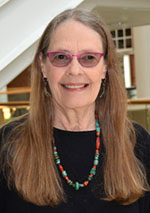
Abigail English, JD SAHM Senior Policy Fellow
Since our last newsletter in October, the Advocacy Committee at SAHM has continued to be active! The Advocacy Committee has continued to be a force in national adolescent health policy and to play a role in key legal decisions and cases that affect the health and well-being of adolescents.
Climate Change
The January 2025 issue of the Journal of Adolescent Health includes a new position paper from SAHM and the International Association for Adolescent Health called “Responding to the Impact of Climate Change on Adolescent and Young Adult Health.” Several of the authors are involved in SAHM’s Climate SIG and Advocacy Committee, including Sadhana Dharmapuri, lead author and Climate SIG co-chair.
On December 18, 2024, the Montana Supreme Court issued a historic ruling, siding with 16 youth plaintiffs in Held v. Montana who sued the state over its promotion of fossil fuel extraction and its failure to consider climate change impacts. The Court held 6-1 that the state’s action violated the youth plaintiffs’ fundamental constitutional rights to a clean and healthful environment under the Montana Constitution. In reaching its decision the Court relied on the amicus brief of public health experts and physicians, in which SAHM joined, that documented the extensive evidence of harms to the plaintiffs’ physical and emotional health and well-being.
Gender Affirming Care
In 2023 and 2024 SAHM signed onto “friend of the court” (amicus curiae) briefs in numerous cases challenging bans or restrictions on gender-affirming care cases at all levels of the state and federal courts, including cases in Arkansas, Florida, Georgia, Idaho, Kentucky, Indiana, Montana, Oklahoma, North Dakota, Tennessee, and Texas.
On December 11, 2024, the Supreme Court of Montana upheld the preliminary injunction preventing the Montana law banning certain gender affirming care from taking effect while the litigation continues in the lower courts and the final ruling is issued. The court’s opinion favorably cited the amicus brief submitted by leading U.S. medical organizations, including SAHM.
On December 3, 2024, the U.S. Supreme Court heard oral arguments in U.S. v. Skrmetti, the case challenging the constitutionality of the Tennessee law banning gender affirming care for minors. SAHM joined with other medical amici in an amicus brief that provided the Court with an accurate description of the relevant treatment guidelines and summarized the scientific evidence supporting the gender affirming medical care for adolescents prohibited by the Tennessee ban. The Court heard arguments that the ban violates the Equal Protection guarantee under the 14th Amendment. A decision from the Supreme Court is anticipated by mid-2025.
SAHM’s Collaboration with the American Academy of Pediatrics (AAP)
SAHM has two liaisons with national AAP committees and councils. This fosters important collaboration between our two organizations. Joanna Brown, as chair of SAHM’s Advocacy Committee, serves as the liaison to the AAP’s Committee on Federal and Government Affairs (COFGA). Dr. Laura Grubb is the liaison to the AAP’s Council on Adolescents and Young Adults (CoAYA).
COFGA last met on November 18 and 19th, in Washington, D.C. The committee discussion focused on preparing for the start of a new administration and the AAP’s advocacy agenda.
Some highlights from the COFGA meeting:
There was robust discussion around vaccines and evidence-based science and medicine. It’s important for us to continue to address the vaccine issue at the state level, fighting against efforts for new or broadening exemptions that allow for less utilization of life-saving vaccines.
About communication
We all can continue to work on communicating effectively for adolescents and our profession as 2025 begins. We will face misinformation and disinformation as well as attacks and growing mistrust in science and public health, and it is important that we can stand strong in knowing that we perform super-important work for adolescents, guided by what we know is best for their health and well-being.
Tools we can use to advocate and forge progress:
- Speaking out with intention for impact;
- Strategic silence;
- Celebrating wins;
- Posting with purpose; and
- Offering positive stories about our work.
Visit to the Hill
At the Capitol we advocated for a range of AAP priorities. These included the need to keep children and adolescents first in federal spending, with, ongoing funding of research into gun violence prevention, and funding for pediatric subspecialty loan repayment, for instance.
COFGA members and liaisons also advocated, with our federal delegations, for proposed online safety legislation: KOSA and COPPA 2.0.
Additional Policy Items to Watch in 2025
Many policy developments in the coming year will affect the health and wellbeing of adolescents and young adults. As we prepare to meet upcoming challenges, we should remain focused on the health and healthcare needs of the young people we serve. We can also strengthen our advocacy through collaboration. For example, if we do advocacy work in one state, such as writing testimony, we can help colleagues facing similar issues in other states by sharing that work.
Throughout the coming year, the Advocacy Committee will bring important policy developments to the attention of SAHM members. A few issues we will definitely be watching—where the rights of adolescents and young adults may be under threat at both the federal and state levels—include Medicaid, immigrant youth and families; LGBTQIA+ youth; and contraception.
- Medicaid coverage provides critically important access to essential services for millions of AYA. Federal and state policy proposals may include limitations on eligibility, coverage, and services that affect young people. Is your state considering such policies?
- Immigrant youth and their families are likely targets of many federal, state, and local restrictive policies and law enforcement efforts. What are you seeing in your jurisdiction?
- LGBTQIA+ youth have already been the focus of limitations on access to care and restricted rights in many states, with new proposals being introduced at the federal and state level that may directly impact AYA. Are these developments affecting your patients?
- Access to contraception for AYA is an increasing concern, with the potential for federal regulatory changes as well as restrictive state legislation. The federal Title X program is an especially important resource that may be a target. What are you seeing in your state?
SAHM members can help the organization and their patients by alerting the Advocacy Committee to developments related to these topics as well as other issues of concern. We also encourage members to contact the Committee with ideas and recommendations for advocacy and to share ideas for national and local organizations that can provide direct legal assistance to individual AYA who are experiencing threats.
Advocacy Virtual Sessions
New Advocacy Virtual Sessions are being planned for 2025; possible topics include Medicaid for AYA, reproductive health, and school health. Please contact us with any thoughts or ideas, and/or if you want to organize a Virtual Chat or be a speaker.
Advocacy Resources
In addition to the advocacy support that SAHM provides, excellent resources are available through the state-level American Academy of Pediatrics (AAP) chapters and other organizations. Each AAP state chapter has an executive director versed in state advocacy activities, legislative affairs, and ongoing lawsuits. SAHM partners with the AAP for many advocacy activities (national AAP advocacy site is here). Contact information for AAP state chapters can be found at: Chapter Websites (aap.org). The American Public Health Association (APHA), the American Academy of Family Physicians (AAFP), and the American College of Physicians (ACP) have great advocacy resources as well. We also encourage SAHM members to reach out to their SAHM regional chapters to learn about ongoing advocacy efforts, learn from each other and team up to amplify your voices.
Our future SAHM advocacy for AYAs will depend, as always, on the enthusiasm, commitment, dedication, creativity, and perseverance of SAHM members. The Advocacy Committee is ready to help. We would love to work with you. Here are the Advocacy Team members at SAHM:
SAHM Advocacy Committee
Joanna Brown – Chair
Saira Ahmed
Carolyn Curry
Shelby Davies
Serwa Ertl
Sarah Green
Davia Loren
Gregg Montalto
Erik Su
Loren Wozniak
Advocacy Special Interest Group Leader: Laura Grubb, MD, MPH
Senior Policy Fellow: Abigail English, JD
Committee Consultants
Jesse Barondeau
Paula Cody
Abigail English
Laura Grubb
Andrea Hoopes
Karen Johnson
Lisa Mihaly
Sarah Nathan
Ashley Pollicelli
Maria Rahmandar
Jack Rusley
John Santelli
Eve Shapiro
Margaret Stager
Andrea Swartzendruber
Kathleen Tebb
Iniobong Udo
Ariel White
Annual Meeting Update

Chinwe Efuribe, MD, MPH
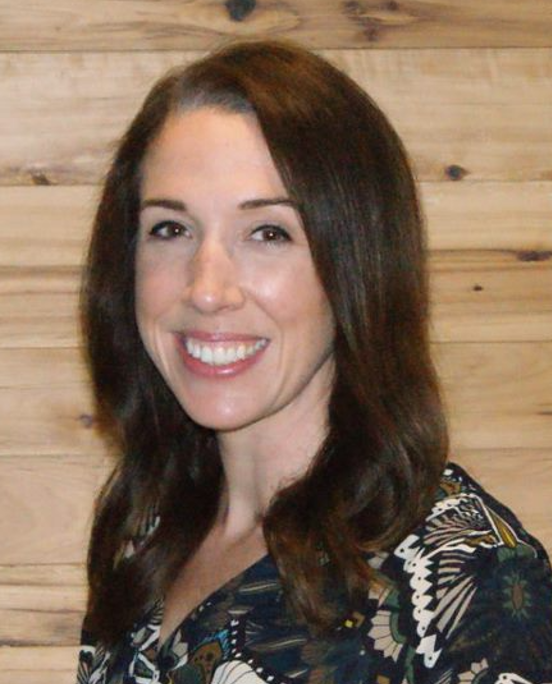
Maria Rahmandar, MD
Dear SAHM Members,
Lodging plans? Check! Travel arrangements? Check! An open mind and a spirit of collaboration? Double Check! The 2025 SAHM Annual Meeting in Baltimore, MD is fast approaching and just like the new year, this conference is set to show up soon without hesitation!
After you all have experienced the holidays in your own diverse and special ways, we are committed to providing an exceptional experience for all attendees of this year’s conference. The Program Committee continues to move SAHM’s mission forward through the annual meeting by building upon traditional offerings for professional development. While we may not offer a hybrid or virtual component this year, our team is actively exploring creative pre- & post-meeting virtual options to extend our conference learning year-round to SAHM members and beyond.
We acknowledge the various systemic challenges to building capacity, sustaining morale and fostering inclusivity among adolescent health professionals across the globe. Our theme, “Empowering You and YOU-th To Make Our Voices Heard”, will serve to inspire and unite us in Baltimore, grounding the work we all do to improve the lives of adolescents and young adults.
If you haven’t already done so, check out the SAHM 2025 Annual Meeting Detailed Program Schedule on the website. We encourage you to attend as many sessions as you can without leaving the conference more exhausted than you came. Here are some highlights from the Program Committee:
Plenary Sessions
The Plenary Workgroup is excited to present three dynamic plenary sessions that will inspire and energize attendees.
- Tuesday Gallagher Lectureship: Jessica Marcella, Deputy Assistant Secretary for Population Affairs at the U.S. Department of Health and Human Services, will speak alongside youth advocate Ren Culbreath, a Community Outreach Specialist at Johns Hopkins School of Medicine. Together, they will share their passion for reproductive rights and sexual health, encouraging attendees to engage and take action both at the meeting and beyond.
- Wednesday Session: Dr. Lisa Damour, the renowned author, podcast host, and head of the Center for Research on Girls at Laurel School will bring humor and insight to adolescent mental health. Alongside youth speaker Hannah Clarke, a medical student and founder of Periods for Peace, they will offer strategies for reaching broader audiences with wellness and reproductive health education.
- Friday Session: Zeke Cohen, Baltimore City Council member, will lead a plenary on youth advocacy, featuring two inspiring youth speakers, Stanley Huang and Princess Jauan Taylor Durbin. Cohen will share his work on trauma-responsive care and gender-inclusive policies, while Huang and Durbin will provide lessons on youth-driven policy change and advocacy. This session will motivate participants to create positive change in collaboration with youth in their own communities.
View the SAHM 2025 Annual Meeting Plenary page for full details.
Youth Engagement
We are thrilled to see an increase in workshop submissions featuring youth presenters! After peer review, the top workshops will be featured in the Youth Engagement and Empowerment Track, such as “Hear Us, See Us: Stories of Health and Well-being by Indigenous Adolescents and Young Adults”. This track highlights the value of partnering with young people and provides a platform for youth to share their own experiences and research.
The Youth Engagement Workgroup is also planning the annual YE Training Workshop and a community site visit to explore local youth advocacy in action. Stay tuned for a curated list of youth-involved activities that will be part of this year’s meeting. We’re excited to offer meaningful opportunities for inspiration and collaboration from the youth perspective.
Scientific Research (Platform Research, Poster Symposia and Poster Presentations)
The meeting will showcase cutting-edge scientific research that is shaping the future of adolescent health. Attendees will gain access to the latest studies and data on mental health, physical health, social determinants of health, and innovative approaches to care. Review the schedule for updates on the abstract presentations and research symposia, such as the Charles Irwin Jr., New Investigators, where you can connect with up-and-coming researchers in adolescent health.
Networking and Career Development
The Networking and Career Development Workgroup has been working hard to bring you exciting opportunities to enhance your professional journey. A special session on yoga and mindfulness will provide practical skills that you can immediately translate to clinical practice, benefiting both you and your patients. Be sure to check the SAHM schedule for this session!
In addition, we’re compiling a list of local attractions and restaurants in Baltimore, with a little help from our local members. We want to make sure you get the inside scoop on the best places to eat, explore, and relax while you’re in town. We’re also finalizing our roundtable discussions, and we encourage you to share any creative or inspiring ideas. Feel free to reach out to us at heatheraustin@uabmc.edu with your suggestions.
Hot Topics
Be prepared to dive into hot-off-the-press sessions focusing on the latest interventions and approaches to adolescent health. These sessions will cover current events, cutting-edge research, and emerging trends in adolescent healthcare that you won’t want to miss. We’ll also explore new strategies for improving adolescent mental health, addressing social determinants, and advancing youth health advocacy in today’s rapidly changing world.
Educational Sessions (Workshops & Institutes)
The Educational Sessions Workgroup reviewed over 100 thoughtful and engaging workshops and institute submissions. For those submissions that were not accepted this year, we encourage you to please resubmit them for next year’s meeting. The goal of the Program Committee and Educational Sessions Workgroup is to have something for everyone at this meeting and we believe we have achieved it. Highlights include:
- Clinicians of varying levels of expertise can select from several sessions geared for clinical practice by filtering the program schedule to explore tracks tagged as Clinical Advances and/or Clinical Foundations.
- Mental health management is a core skill for any adolescent health professional. That was evidenced at last year’s meeting by a standing-room only session on dialectical behavioral therapy led by behavioral health specialists. Back by popular demand, “Dialectical Behavioral Therapy Microskills for Primary Care Providers and Settings” will be repeated this year.
- Transition of care continues to be an ongoing issue for health care providers and youth. The workshop entitled, “Developing a transition of care for adolescents on the autism spectrum” will address this topic.
- Youths’ relationship with food remains a challenge and there are sessions each day that will provide guidance on weight management services for youth. For youth affected by eating disorders, many have difficulty accessing services. The following sessions showcase strategies for providers caring for youth facing access barriers to care: “Remote Care for Adolescent Eating Disorders: Practical Strategies for Overcoming Obstacles and Maximizing Opportunities” and “Providing Effective Interventions for Children and Adolescents Awaiting Treatment for Eating Disorders”.
- Now more than ever, it is important for health professionals to effectively and succinctly convey their “message” whether it is to the public or trainees. Two professional development sessions to consider on this topic are “Amplifying Your Message through Social Media and Podcasting” and “Breaking Free of PowerPoint: Using Instructional Design and Active Learning Strategies to Transform Your Teaching”.
We continue to create spaces for attendees to connect as a collective where interests align through Professional Networking Dinners, Special Interest Groups (SIGs) and other group meetings.
What’s next on your to-do list? Check the website often for updates as we continue to finalize the schedule. Don’t forget to book your hotel and register soon to secure your spot in Baltimore! We welcome thoughts and questions at info@adolescenthealth.org.
Take care!
SAHM 2025 Annual Meeting: Virtual SIG Meetings
The following SAHM Special Interest Groups (SIGs) have opted to host their meetings virtually during the weeks before and after the in-person SAHM Annual Meeting. Virtual SIG meetings are open to all SAHM members and non-members registered to attend the in-person 2025 SAHM Annual Meeting.
Registration is free and requires only your name and email address. A confirmation email will be emailed to you after registering that includes your unique zoom access link.
Click on any of the SIG Meetings listed below for schedule and registration details. View the SAHM 2025 Annual Meeting in-person meeting program schedule for a list of planned in-person SIG meetings.
Two New SAHM Position Papers Published in January
- Promoting Food Security Among Adolescents and Young Adults (View Position Paper)
Food security exists when all people, at all times, have physical, social, and economic access to sufficient, safe, and nutritious food that meets their dietary needs for an active and healthy life. While there is a lengthy body of literature examining food insecurity among children, food insecurity among adolescents and young adults (AYAs) has been relatively understudied. The literature demonstrates that AYAs experiencing food insecurity have poorer physical, mental, and psychosocial health outcomes than their peers, which may persist into adulthood. As AYAs reach reproductive maturity, those experiencing food insecurity are more likely to have children who are also poorly nourished, perpetuating intergenerational poor nutrition and its associated health and socioeconomic costs. In this position paper, Society for Adolescent Health and Medicine (SAHM) recommends actions that healthcare professionals can take to achieve a goal of universal food security among AYAs. As SAHM strives to promote the optimal health of AYAs around the world, the positions in this paper affirm SAHM’s commitment to promoting food security for all AYAs. Responding to the Impact of Climate Change on Adolescent and Young Adult Health (View Position Paper)
The Society for Adolescent Health and Medicine and the International Association for Adolescent Health recognize that climate change impacts multiple dimensions of health and well-being for adolescents and young adults. According to the World Health Organization, climate change is one of the top 10 health threats facing humanity. No aspect of adolescent health is spared from the consequences of climate change: food and housing insecurity, heat-related morbidity and mortality, water-borne diseases, infectious diseases, including sexually transmitted infections and HIV, mental health disorders, gender-based violence, conflict, internal displacement, and migration are all impacted. Vulnerable populations, such as adolescents and young adults, and those living in lower- to middle-income countries and environmental justice communities, are the ones whose health will be most affected. The Society for Adolescent Health and Medicine and the International Association for Adolescent Health call for urgent action in alignment with the United Nations Sustainable Development Goals and the Convention on the Rights of the Child to avert the irreversible consequences of climate change. Health professionals and health-care organizations can and should help lead global climate action along with youth, supporting mitigation and adaptation strategies that protect young people. Adolescent health professionals and organizations must advocate for climate justice and equitable resources, urge health systems to mitigate their adverse impacts on the environment, advocate for health organizations to focus on green investments, be leaders in climate education of the next generation of adolescent health professionals, and focus research on equitable strategies to reduce climate harms.
View a listing of all published SAHM Position Papers
Journal of Adolescent Health: December 2024 Supplement Alert
Our supplement this month, The Rise in Adolescent Social and Health Inequalities Amidst the COVID-19 Pandemic, takes a close look at the various impacts that the COVID-19 pandemic had on young people through the lens of the ongoing Global Early Adolescent Study (GEAS) of 10- to 14-year-olds in 15 countries.
SAHM Student-Trainee Council Updates
Upcoming 5th Fellowship Friday Lecture Series Session
Adolescent Cannabis, Tobacco, and other Drug Use: What’s Going On and What Can We Do?
January 31, 2025 – (10-11 a.m. PT); (Noon-1 p.m. CT); (1-2 p.m. ET)
REGISTER NOW
Bonnie Halpern-Felsher, PhD, FSAHM
President, Society for Adolescent Health and Medicine (SAHM)
Marron and Mary Elizabeth Kendrick Professor in Pediatrics II
Division of Adolescent Medicine, Stanford University
Session Description: New tobacco/nicotine, cannabis, and other drugs are infiltrating the market, including new disposable e-cigarettes, e-cigarettes shaped like watches, highlighters, and other household products, nicotine patches like Zyn, “non-nicotine” e-cigarettes, cannabis edibles, psychedelics, and fentanyl. This presentation will provide a brief overview of these products, including nicotine and THC levels, addiction, and other health effects, health concerns, as well as marketing of these products. The presentation will then focus on how best to educate, prevent, and reduce use, including several Stanford REACH Lab-created evidence-based curriculums and resources that can be used to help prevent and reduce use.
Learning Objectives:
- Understand and be able to recognize different substances that youth are using.
- Understand harms including addiction associated with different drugs
- Know about and how to screen, counsel, and prevent use
Visit the SAHM Student-Trainee Council page for more details about this session and a schedule of upcoming/recordings of previously held 5th Friday Fellows Virtual Lectures.
Join the new SAHM Student-Trainee Listserv
Join the Student Trainee Council (STC) listserv to collaborate with a community of trainees and early career professionals, share and receive opportunities promoting adolescent health, and engage in peer-to-peer discussion on all things trainee-related!.
How to subscribe to the SAHM Student-Trainee Listserv – (must be a SAHM member to be eligible)
- Login to the SAHM Portal – https://portal.adolescenthealth.org
- Select “Manage my profile” from the “My Profile” menu at the top.
- Click “next” at the bottom until you reach the 4th page titled “Listservs”
- Check the box for “SAHM Student-Trainee”
Please note: It will take roughly 1-2 hours for your subscription to take effect; you will receive a confirmation email once successfully subscribed. To post on the listserv once subscribed, simply send an email to the following address: SAHM-Student-Trainee@groups.adolescenthealth.org
New Available Webinar Recording: Mpox Basics
The American Academy for Pediatrics (AAP) in partnership with the CDC and SAHM present:
Mpox Basics
Speaker: Charlene Wong, MD, MSHP, Senior Advisor for Health Strategy, Centers for Disease Control and Prevention
View Webinar | View slide presentation
This brief but comprehensive on-demand webinar covers critical updates on recent mpox outbreaks. Dr Wong shares CDC guidance on:
- Identifying mpox symptoms and clinical presentation
- Current treatment protocols and best practices
- Prevention strategies and public health measures
- Transmission pathways and mechanisms
- Key risk factors for screening and assessment
This webinar delivers vital information for healthcare providers and public health professionals to effectively respond to Mpox cases in their communities.
Available Resources:
- AAP Red Book Mpox Chapter – (courtesy of the AAP; available for free through July 2025)
- Clinical Overview of Mpox
- Public Health Strategies for Mpox
- December 2024 Dear Clinician Letter
- Mpox Vaccination
- Mpox in the United States and Around the World: Current Situation
- US Case Trends
- Mpox Science Agenda, Reports, and Additional Materials
SAHM Congratulates Our Newest Fellows
The Fellow title in the Society of Adolescent Health and Medicine (FSAHM) is an honorific designation granted to an individual who has demonstrated a long-standing commitment to the welfare of adolescents and a willingness to advocate on their behalf at a local, regional, national or international level.
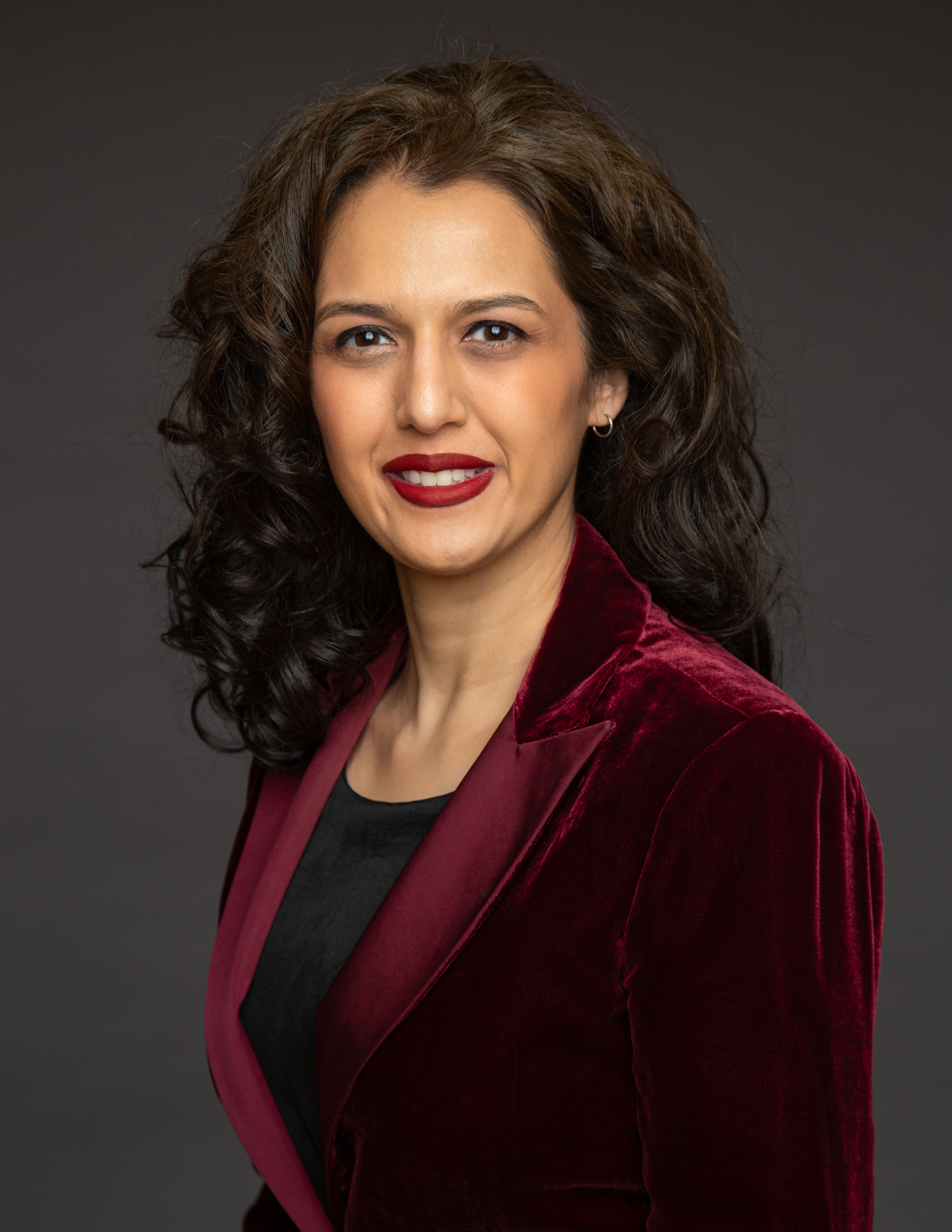
Henna Budhwani, PhD, MPH, FSAHM
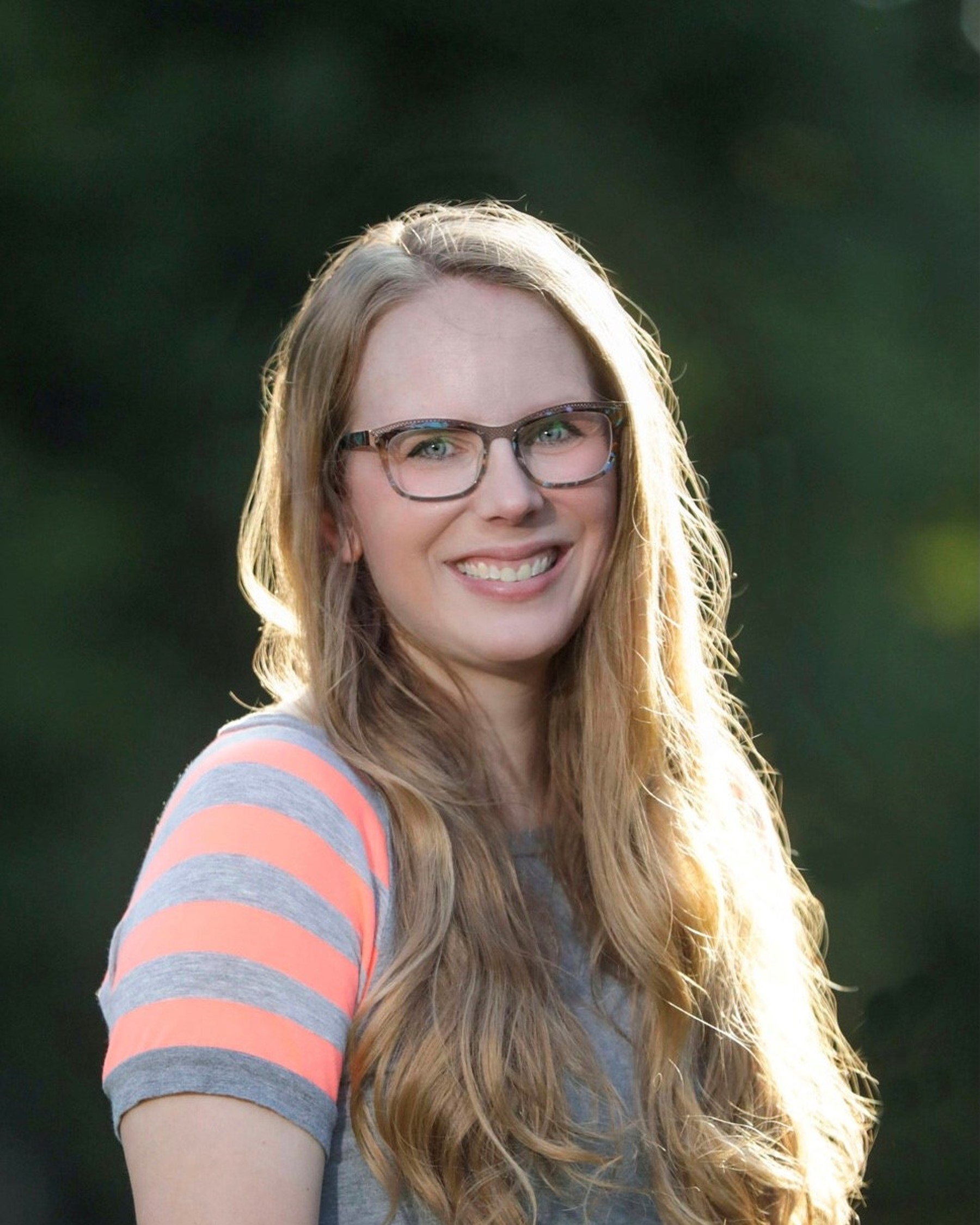
Kari R. Harris, MD, FSAHM
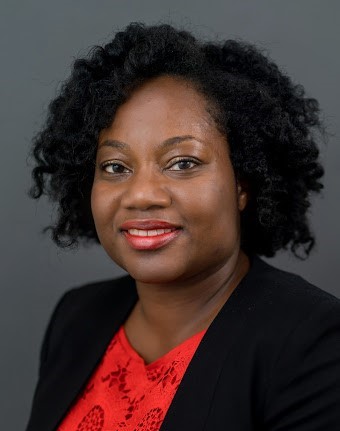
Lonna P. Gordon, MD, PharmD, FSAHM
Becoming a Fellow makes it possible for leaders from a wide range of disciplines to earn recognition for their contributions to adolescent health reflecting SAHM’s multidisciplinary constituency and international identity. Learn more on how you can become an FSAHM

